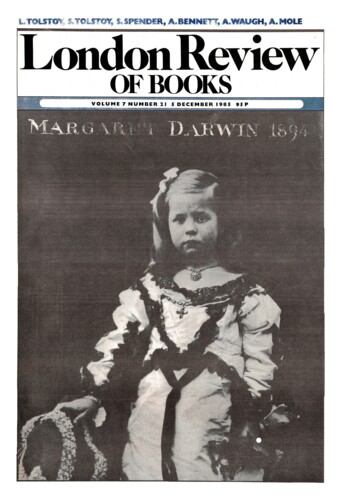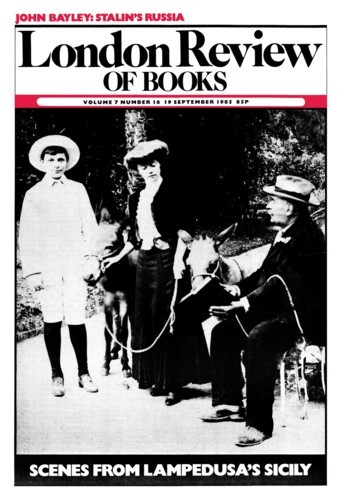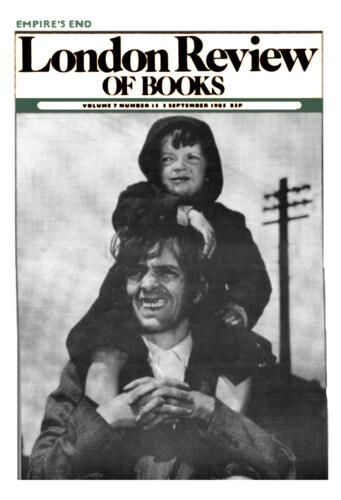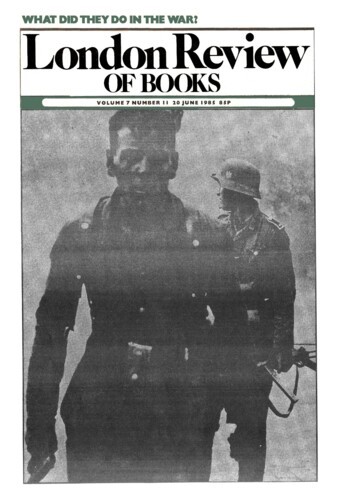Angela and the Beast
Patricia Craig, 5 December 1985
Angela Carter’s Black Venus is Baudelaire’s Creole mistress Jeanne Duval, whose hair the poet once likened to a sea of ebony, among other things; his enchantment and her disenchantment figure in the story, the first in an inspiriting new collection of eight by an inveterate scrutiniser of the whole romantic box of tricks. There’s Baudelaire’s voluptuous reverie, on the one hand – full of his chère indolente, le charme des soirs, with the astonishing hair – and, on the other, cross Jeanne, toughened by experience, poking with a stick at a smoky fire. Men and their fancies don’t count for much with this unimpressionable ex-cabaret dancer – un serpent qui danse, the poet said, using an image not highly regarded by the girl who knows perfectly well how snakes move. Nor is she willing to accept without comment the exotic heritage he foists on her – la langoureuse Asie et la brûlante Afrique (all that) – knowing herself, in fact, to be completely déracinée. Hasn’t her family history been all but excised, with only a Creole grandmother, gabbling a broken dialect, to anchor her to a shady lineage? Carter – who’s created a bizarre déité or two of her own. notably Fevvers in Nights at the Circus – imagines the reality behind the narcotic lines, in which the poet goes overboard for the scents of tar and musk and coconut oil. Pungent odours indeed.’




